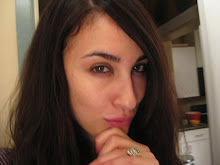








When I was a freshman in high school my parents switched my sister and I to a new school in a a small town where they owned a lake house. Moving in the middle of the school year is never an easy task, but my sister and I handled it well together. It would prove to be an influential move for us in many ways.
One of the more subtle ways was my discovery of the artist Andrew Wyeth. I had a new teacher named Mr. Bidwell who taught studio art classes with little sessions of art history sprinkled in. One of the paintings we had to learn was Wyeth's Christina's World. This discovery was in some way a studied awakening to taste.
Wyeth's scenes are the equivalent of standing in the middle of a wheat field or prairie at night in winter, not cold but satisfied with only the wind, in awe.
Andrew Wyeth has that so quiet it is loud quality. Agnes Martin has it, Richard Serra has it, Robert Smithson. So many other legends have it. Ann Demeulemeester. Sometimes PJ Harvey. Radiohead, Neutral Milk Hotel, so it goes, screaming into/against the wall. That kind of fierce blank power and its many shades.
Wyeth painted bare moments in time, though enveloped in a silence that is far reaching and full.
SO
MUCH
SPACE.
And that is what I love.
After I wrote this I read an Andrew Wyeth Boston Museum catalog that I bought a while back. I found so many lines and ideas that relate to what I wrote, but even better are the ideas that I was unable to articulate or touch upon in my own thinking. Here are parts of the essay that I loved:
*
Poets, painters, and musicians sometimes choose to live, and strictly operate, within a very special world defined by very special boundaries self-imposed. They do not set out to discover these worlds; they appear to be born within them. As they mature and develop, the shape and character of their environment, accepted or adapted, increasingly appear to strengthen and sustain them technically as well as philosophically. When we read, inspect, or listen to their work we enter into their domain far more than they do into ours. This, it seems to me, is always so.
Wyeth has always been the native son: unhappy traveler away from home, but tireless and uplifted walker on familiar ground, excited by the cleavages of sun and shadow, by implements, by weather, phrenology, a strand of wire, by surface textures - "I love white things. Oh, I love white." And who wouldn't doubt his love of doors and windows, of sudden contrasts between half in, half out?
It was the sweep and freedom of those early watercolors - mostly Maine, it seems to me now - that bowled me over. I was looking into a brand-new world. Far from touching sentiment, the cold kelp-feeling of a down east wind kept blowing on me.
Wyeth's passionate love of fallen snow - not falling snow . . . his fondness for bare textured surfaces, clean tabletops and windowpanes, all contribute to insulate him from the field of physical action.
Looking back on the time when I first saw Andrew Wyeth's early watercolors and portraits and began to urge my friends to buy him, I think today it was a certain freedom and contagious quality of solitude and self-sufficiency I felt in his cool palette that had much earlier reached me in the tonal palette of the symphonies of Sivelius.
Part of the business of art, as Santayana says of music, is to remind us. If a picture doesn't remind me of something in my life that I've forgotten, I am not involved.
How come we should see the wholesale purchase of a powerful silence? For silence - and silence absolute - is one of the strongest elements in Andrew Wyeth's work. Are people hungry for silence?
A lifelong habit of making mental notes of any work of art that has moved me often spills the notes into a journal. Under "W" for Wyeth are these entries:
Journal Entry: In his washes and preliminary sketches, Wyeth always seems to reach for the top of the paper. How many of his pictures are especially rewarding just at the top
Journal Entry: Without a grain of sentiment, and unlike Blake's small figure on the ladder to the moon: "I want, I want!", Wyeth tells us of his infinite own patience. His costumes and his masks at Halloween give him, for a moment, he has told us, anonymity: he just isn't there. If he never gets in the way of his work, his pictures never get in the way of our response.
Journal Entry: Remembering that Wyeth's painter father was his teacher, reminds me that Harvey Cushing, the neurosurgeon, said: "It is a poor teacher whose student does not surpass him."
Journal Entry: To that "powerful silence" one must add "enormous stillness."
Journal Entry: A brooding silence hangs over the Wyeth Landscapes; it is not confined to a room.
Journal Entry: "The world about us would be desolate except for the world within us" ... Wallace Stevens: The Relationship between Poetry and Painting.
All these are the random notes of one who thinks he understands one artists's commitment to his art. Ability, no matter where it stands on the scoreboard of genius, is a great factor. Great also are humility and honesty. Hokusai: "And old man mad about drawing." Andrew Wyeth: a fairly young man still; still mad about drawing.
We love the things we love for what they are.
*
-From an essay by David McCord
p.s. I dedicate this blog entry to Mr. Bidwell & Hammondsport, New York.


No comments:
Post a Comment